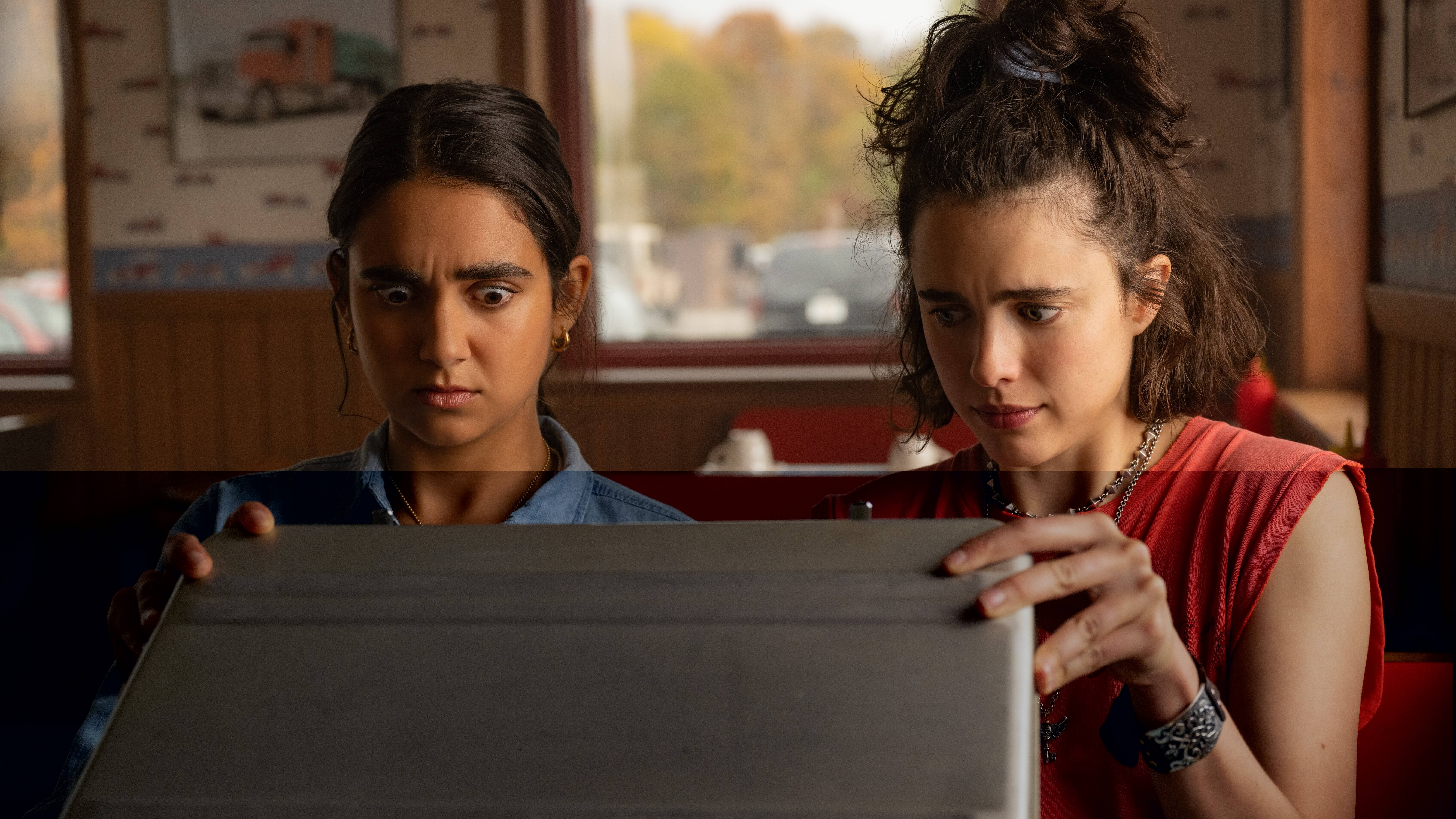Drive-Away Dolls review: A forgettable pastiche of better road movies
Margaret Qualley and Geraldine Viswanathan star in Ethan Coen's latest, made in collabration with his wife Tricia Cooke

In his first foray into narrative film without his brother and collaborator Joel Coen, Ethan Coen keeps it in the family. His partner in Drive-Away Dolls is his wife Tricia Cooke. He produced, wrote, and directed and she produced, wrote, and edited the new film. Or so they are credited, but perhaps like his work with his brother, this is a true collaborative partnership and credit and critique should go to both for all filmmaking aspects. In style and substance, Drive-Away Dolls harkens back to early Coen brothers movies like Raising Arizona or Blood Simple. The humor is outlandish, the characters either eccentric or stupid, and mostly on the wrong side of the law.
The film stars Margaret Qualley as Jamie and Geraldine Viswanathan as Marian, two lesbian friends on an impromptu road trip to Tallahassee. Jamie, the more promiscuous of the two, is leaving behind a few broken hearts including cop ex-girlfriend Sukie (Beanie Feldstein). Marian is prim and proper and in dire need of some romance and sex. A mysterious briefcase gets mistakenly put in the trunk of their rental car and soon enough a bunch of goons (played by Colman Domingo, Joey Slotnick and C.J. Wilson) are in hot pursuit. Complicating matters are other kooky characters played by Bill Camp and Pedro Pascal.
The ingredients are there for a quirky comedy in which the tensions between the characters, whether romantic or competitive, make the jokes. Marian and Jamie find themselves strangely attracted to each other amid all the naughty nonsense happening around them. The thugs, trying to catch up with them, move from combative banter to outright hate as they try to one up each other. Somehow after four decades of Coen brothers rip offs, homages and straight up remakes, making something this similar to their original work becomes outdated. It’s a joke we’ve heard many times, stale and not that particularly funny. If it elicits any chuckles it’s merly out of nostalgia.
There’s novelty in having queer protagonists for such a decidedly Coen brothers like movie. That novelty wears off quickly though when the situations they are put through feel like rehashes of something sharper and frankly better. Even taken at its clear B-movie modest ambitions, Drive-Away Dolls comes through as something thrown together hastily without any originality in concept or execution.
Qualley gives a performance that will be divisive. She’s very loud, sonically, emotionally and in gestural acting. Her Jamie has a Texas drawl that never lets up despite the fast delivery of all her lines. It’s a performance that’s hard to ignore but equally hard to like. Viswanathan makes for a good foil with a grounded performance that lacks any theatrics. However she fades into the background a lot of the time with Qualley’s constant attempts to hog the spotlight. Feldstein as a butch cop mad with jealousy is a delight and elevates her scenes, securing a couple of laugh out loud moments in a comedy devoid of them. Camp is as reliable as ever giving his store clerk distinctive characteristics that make him believable both as a real person and an inhabitant of this preposterous environment.
Drive-Away Dolls is more successful as a pastiche of ’60s and ’70s road movies. Audiences looking for a modernization of attitudes and culture transposed into that context may enjoy this. Cooke and Coen set up a film-long joke that involves a Matt Damon cameo and perhaps an answer to what was inside that briefcase from Quentin Tarantino’s 1994 film, Pulp Fiction. It could be an inside joke for cinephiles and fans of a certain kind of American indie filmmaking.
Many filmmakers keep making films about the same themes and in the same tone successfully. However for that to be palatable it must feel original in execution. Cooke and Coen manage to make a movie whose only virtue is reminding people of other better films they liked decades ago. There is not enough substance nor laughs to make Drive-Away Dolls anything more than instantly forgotten. Still, in these barren months for new American movies it could find an audience.